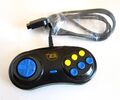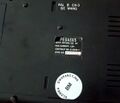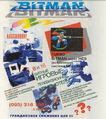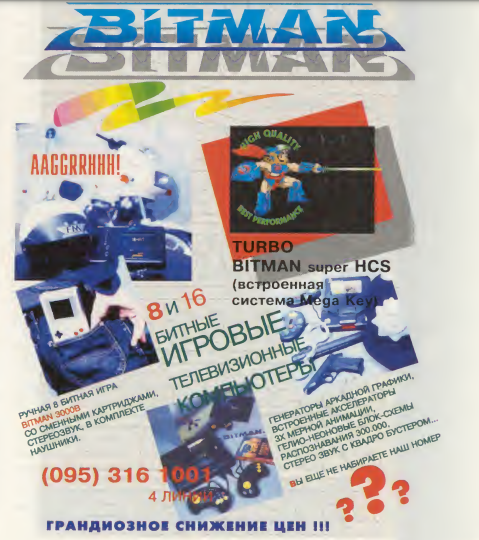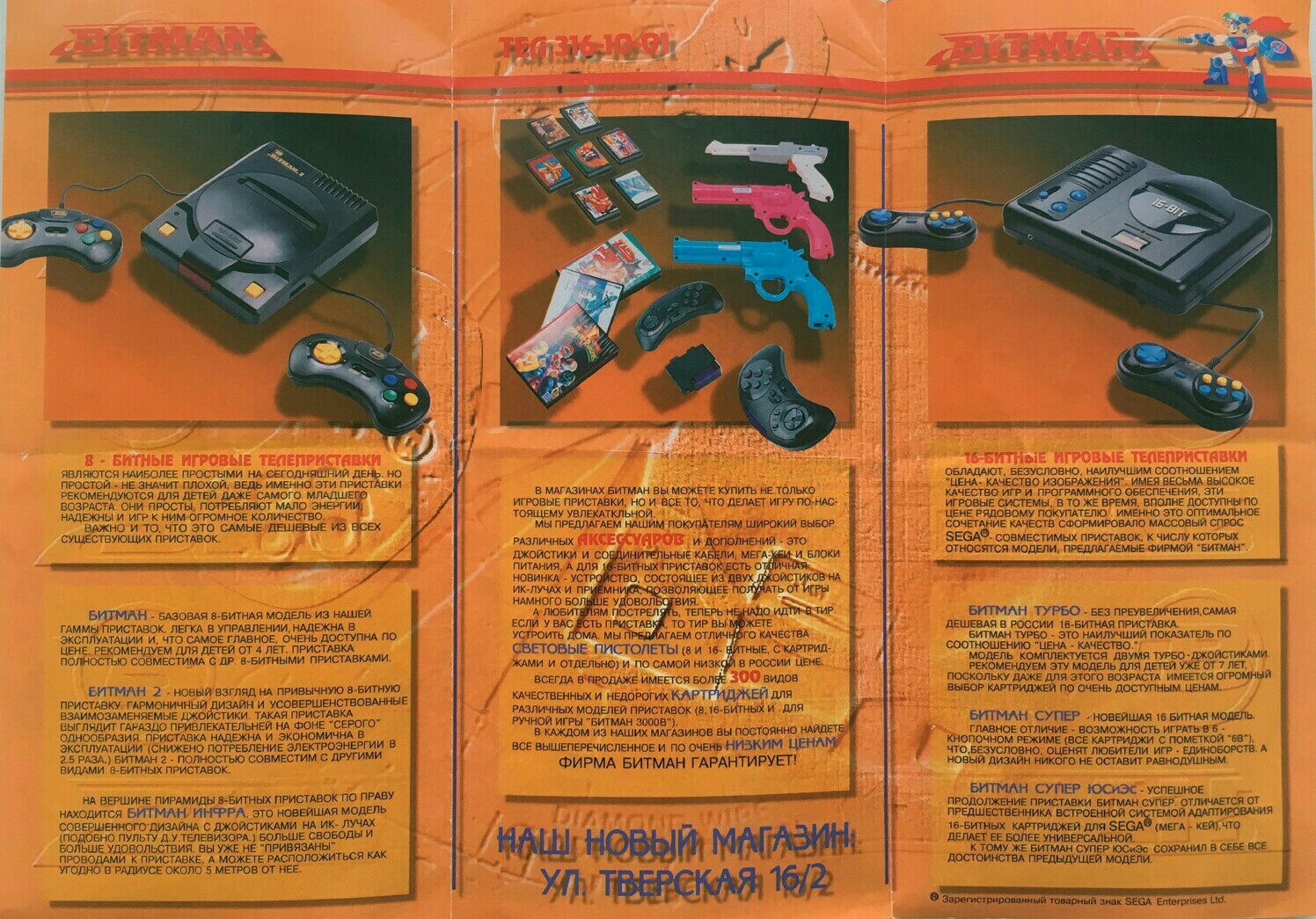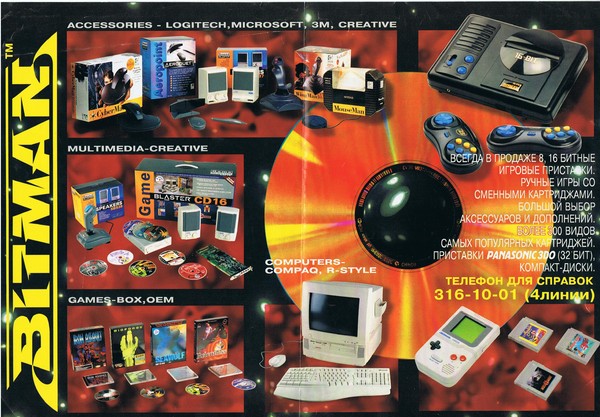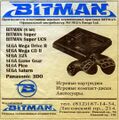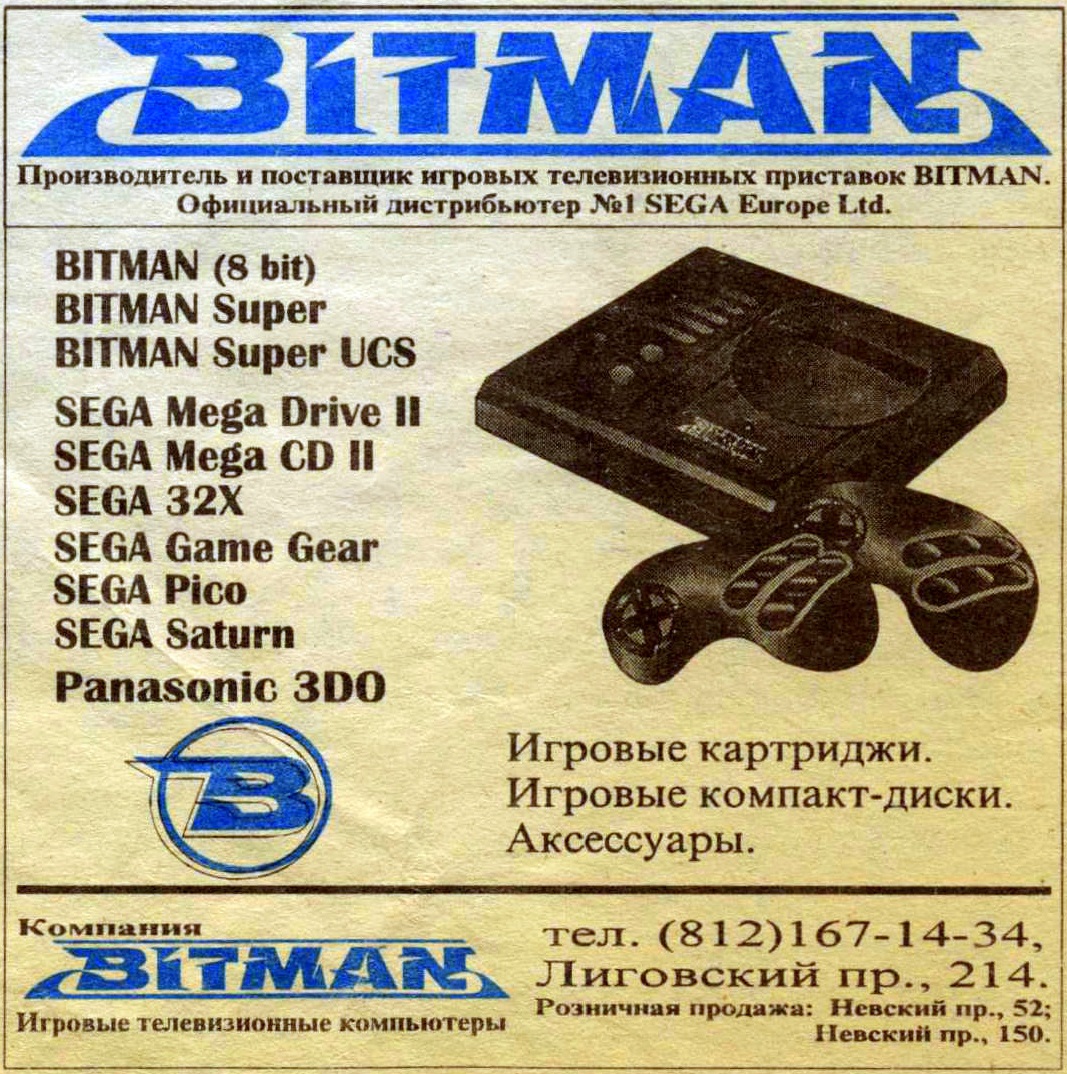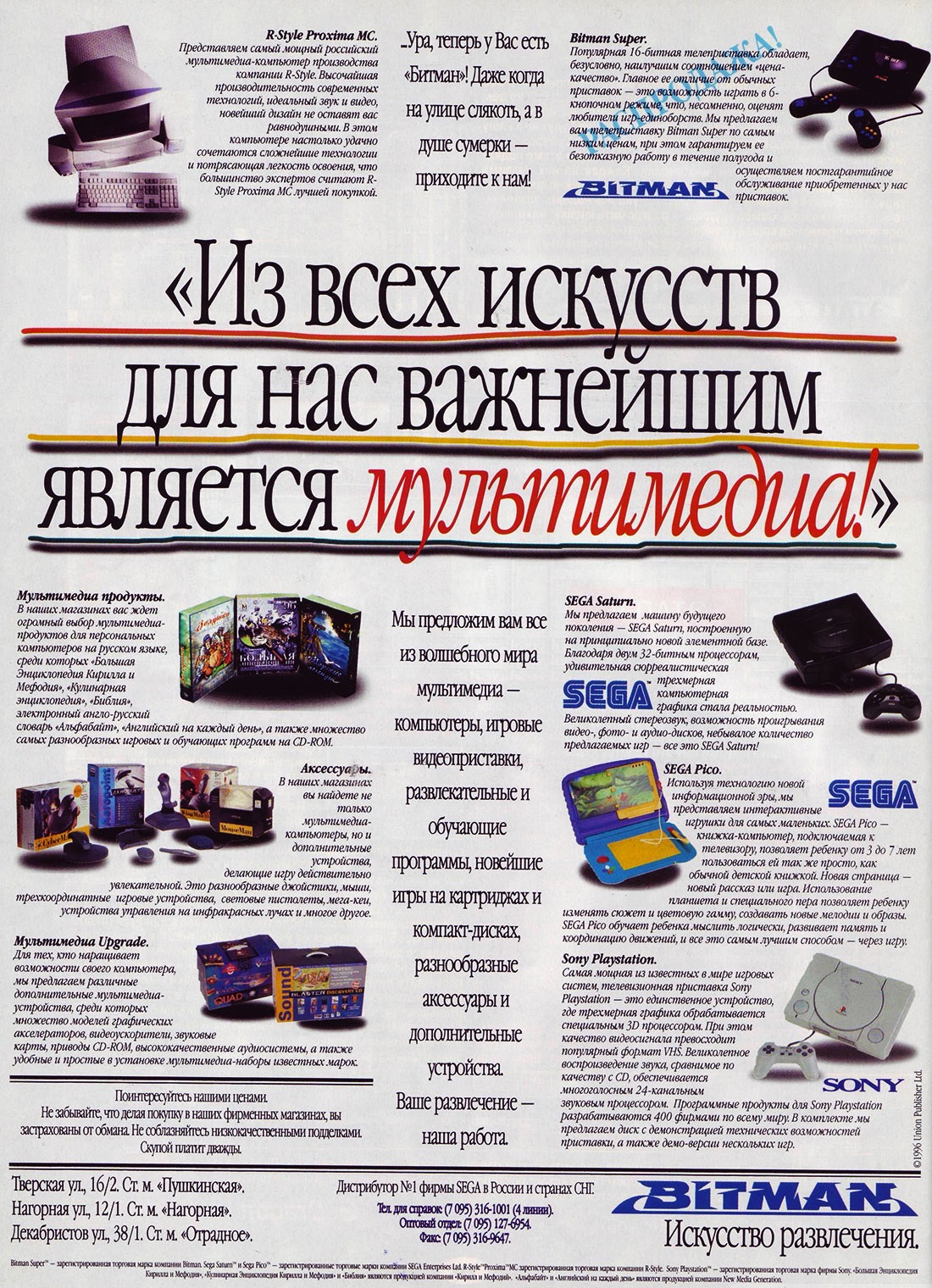KW-501
From Sega Retro
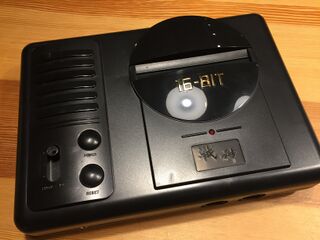
| |||||||||||||||||||||||||||||||||||||||||||||||||||||||||||||||||
| KW-501 | |||||||||||||||||||||||||||||||||||||||||||||||||||||||||||||||||
|---|---|---|---|---|---|---|---|---|---|---|---|---|---|---|---|---|---|---|---|---|---|---|---|---|---|---|---|---|---|---|---|---|---|---|---|---|---|---|---|---|---|---|---|---|---|---|---|---|---|---|---|---|---|---|---|---|---|---|---|---|---|---|---|---|---|
| Manufacturer: King-Wei Electronics | |||||||||||||||||||||||||||||||||||||||||||||||||||||||||||||||||
| Distributor: Electrolab, Universe Electronic S.A, Bitman, Interactive Enterprises, Bobmark International, Samurai Software, Wywy Group, NKH (?), Golden China, Anova, Archon Computer Products, BTE Electronics SA, King Karol Argentina | |||||||||||||||||||||||||||||||||||||||||||||||||||||||||||||||||
|
The KW-501 is an unlicensed Sega Mega Drive clone manufactured in Taiwan by King-Wei Electronics, Inc (慶威電子) and distributed across various countries during the 1990s. It was the successor to the KW-500 and was built as a more affordable alternative to Sega's official offering, and was one of the first (and perhaps most prominent) Mega Drive clones released to the general public. The KW-501 was predictably challenged by Sega in many markets, but saw recognition by Sega in countries where presence was difficult.
The original version of this console is believed to be the Zhan Shen (戰神) which was sold in Taiwan, however numerous companies distributed the KW-501, rebranding the unit to suit their needs. There are many slight variations of the console, including the Scorpion XVI (by Interactive Enterprises), King-500 (by Anova), Froggy System 16 (by BTE Electronics SA), MG-16 (by Electrolab), Turbo Aito (by Universe Electronic S.A), MG-2 (by Kinyo), Super Bitman (by Bitman), Power Pegasus (by Bobmark International), Samurai MG-16 (by Samurai Software), Micro Genius 2 (by Micro Genius), KW-II, Kowi 96' and Kowi 97' (by Kowi), King Karol (by King Karol Argentina), Hitex, Magic 2, Speedy Boy, World of Games as well as the Saba Super Mega 16 Bit which is the English version of the Zhan Shen.
The first models in this series continued to appear under the name of the KW-500. The console also had a modified versions called KW-501U, KW-501D and KW-501UD which didn't differ in design, but with the components inside the console.
KW-501 successor is the KW-502 from 1994. The next one was KW-503 released in 1996, which is a successor of few KW-501 clones. The KW-504 was a new PCB revision of KW-503. The last console noticed from this series is the KW-505.
All KW-501 consoles are presumed to be internally identical, with minor cosmetic alterations and swapped RF adaptors for differing markets.
Contents
Hardware
The KW-501 functions as a regular (original model) Mega Drive, complete with volume slider and support for the Sega Mega-CD via the expansion port underneath the unit. Furthermore its controller port positioning lines up with a real Mega Drive, meaning the Remote Arcade System is compatible. The unit is not, however, compatible with the Sega 32X, as the add-on's connection cable will not physically fit in the system - minor modifications to the circuit board can re-enable this functionality.
New to the KW-501 are two switches located next to the expansion port for determining both region and refresh rate, making the system compatible with the vast majority of Mega Drive games. The KW-501 was also designed around the concept of a built-in Mega Drive game - below the unit lies a second cartridge slot which the unit will default to if no cartridge is detected on top. Any regular Mega Drive game can be inserted here, however only the PCB will fit - the game must therefore be removed from its protective shell. Some models, such as the Kowi 96' lack this second port.
The build quality of the KW-501 is predictably lower than the official Sega Mega Drive, but the system usually shipped with two six button controllers.
History
All KW-501s were manufactured in Taiwan for export across the world.
Taiwan
The KW-501 is known to have been released in Taiwan as the Zhan Shen (戰神) and Saba. Both consoles had a trademark registered in Taiwan by King-Wei Electronics.
Germany
A King-500 unit was advertised for sale in Germany by the Taiwanese based Anova[3].
United Kingdom
Under its Scorpion XVI name, the KW-501 became infamous in the United Kingdom, where it gained widespread press coverage and undercut Sega's official Mega Drive console by a considerable margin. Though presumed to have been forced out of the market shortly afterwards, the Scorpion XVI stands as one of the few clone consoles of this nature to make gains in the region and is now a valuable collectors item. The console was distributed by Interactive Enterprises as a successor to the Scorpion 8, which was a famiclone. The first models were sold in a black box with the number KW-501, while the later were sold in a yellow box with the number KW-501U.
Predictably the Scorpion XVI did not see a widespread release, however is known to have retailed at branches of Beatties for about £70.
South America (Argentina)
The majority of KW-501 consoles appear to have been sold in South America in PAL-N regions (and thus were mostly found in Argentina). Consoles are known to have crossed the border into Brazil, but were met with stiff resistence by Tectoy. It is assumed some systems also crossed over to Uruguay and Paraguay, which also use the PAL-N format.
MG-16s distributed by Electrolab are perhaps the most common unit to be seen in Argentina. Given the extent of Mega Drive piracy in the region, is difficult to gauge the success of the KW-501 - given the rarity of the Sega Mega-CD and its games, there were likely many cheaper alternatives to this unit. This console has a successor under the name MG-16R and MGW-16 modeled on KW-503.
Other known clones distributed as KW-501 in Argentina are Turbo Aito distributed by Universe Electronic S.A from 1994, Froggy System 16 distributed by BTE Electronics SA as a successor of 8-bit Froggy Family Game clone console, MG-2 distributed by Kinyo, King Karol distributed by King Karol Argentina and KW-II, Kowi 96' and Kowi 97' distributed by Kowi.
Russia and CIS
The first available clone of this type in Russia was Magic 2, which appeared on Russian market in 1994.[4]
Between 1994 and 1995, the Bitman company released KW-501 in the form of the Super Bitman, a successor to the "Bitman" famiclone distributed by them in the region. The clones produced by this company were popular in CIS region, having 10% of market shares[5]. When in January 1996, Bitman was choose by Sega Europe as Sega's distributor for Russia and CIS, they got rid of unlicensed games and began sold Mega Drive II alongside with Super Bitman, which from now on was called the official clone[6] similar to Mega Game II in Portugal, Power Pegasus in Poland and Magic 2 in South-East Asia. The console have successor based on KW-503.
Poland
KW-501 was released as the Power Pegasus and was distributed by Bobmark International as a successor to the Pegasus console, with warranty of Eltors Electronic. It was originally announced on Play Box 95, where they promised to release it before Christmas 1995[7] and judging by the date of shipment under console, it was released after September 1995. Bobmark was a Sega authorized distributor in Poland, selling Mega Drive at the time so it could be assumed that the product was released with the permission of Sega, just like Mega Game II in Portugal, Super Bitman in Russia and Magic 2 in South-East Asia. Using the well-known Pegasus brand was supposed to attract to Sega, players who played on 8-bit famiclone.
Although the console with 1 six button controller, often bundled with 1 original game (mostly Sonic the Hedgehog, Sonic the Hedgehog 2 or Spirou) cost 329 zł[8] and was cheaper than the original Mega Drive whose most basic model with 1 three button controller cost 350zł[9][10], it didn't gain as much popularity as it predecessor and one of the reasons for the failure was the lack of advertising, which resulted a disappearance among other Mega Drive clones and officially available consoles. Eventually there was also new model called KW-501U which is practically the same as previous one in design and only difference are a components inside.
In early 1996, Sega changed its policy and began marketing Mega Drive's II "basic set" for 399zł, sold with 1 control pad and 1 free multigame Mega Games I[11] and "Extra 3" set with 1 controler and 3 old games for 459 zł. Bobmark decided to focus on the Mega Drive and the remainings of Power Pegasus stocks were sold until late 1996, for around 300 zł and was last seen as a prize in the Kalambury show along with Sega Saturn[12]. Judging from numbers under the console, at least 10,000 units of Power Pegasus were produced.
Indonesia
KW-501 was sold here officially, for a very short time.
Serbia and Montenegro
In this region, the KW-501 is known as Saba.[13]
South Africa
MG16 was sold in this region by Golden China and Hitex Super Mega 16 bit by Archon Computer Products.
Singapore, Malaysia and Brunei
As in Poland and Russia, the version of the KW-501 named here Magic 2 was sold by Wywy Group, the official Sega distributor in this country, along with the Sega sticker under the console. Mega Drive was still sold officially by Wywy at the same time and clone was distributed in rather limited numbers.
Algeria
Rumors says that King-Wei contacted NKH - official Sega distributor in Algeria and offered them production of 16-bit Sega consoles with official trademark's sticker or with changed name and supposedly distributor accepted this and sold clone in the region.
India
The KW-501 was distributed here as the Samurai MG-16 by Samurai Software, associated with the Samurai Electronics company which in 1987-1994 distributed Nintendo consoles in India under the name Samurai. The KW-501 has been on sale since 1996 with a registered trademark in India on October 7, 1996.[14]
End
King-Wei ceased operations in April 1998,[15] which meant the end of KW-500s brand. Rumors say that Sega sued King-Wei and won it in 2000.
Magazine articles
- Main article: KW-501/Magazine articles.
Photo gallery
King Karol brand model
Promotional material
also published in:
- Action Games (AR) #34: "Marzo 1995" (1995-xx-xx)[16]
- Action Games (AR) #35: "Abril 1995" (1995-xx-xx)[17]
- Action Games (AR) #36: "Mayo 1995" (1995-xx-xx)[18]
- Action Games (AR) #37: "Junio 1995" (1995-xx-xx)[19]
also published in:
- Action Games (AR) #34: "Marzo 1995" (1995-xx-xx)[20]
Physical scans
| Mega Drive, (King-500) |
|---|
|
| Mega Drive, (Samurai MG-16) |
|---|
|
| Mega Drive, (MG-2) |
|---|
|
| Mega Drive, (Speedy Boy) |
|---|
|
| Mega Drive, (Micro Genius 2) |
|---|
|
| Mega Drive, (Aito) alt |
|---|
|
| Mega Drive, (World of Games) |
|---|
|
External links
References
- ↑ Videoman #42 (February 1996) "Odpowiedź - Pegasus!" page 29
- ↑ https://www.zaubacorp.com/company-trademark/SAMURAI-SOFTWARE-PRIVATE-LIMITED/U72200RJ1988PTC004703
- ↑ Aktueller Software Markt, "September 1993" (DE; 1993-08-09), page 59
- ↑ Yunyy tehnik 12/1994 page 60
- ↑ Магазин Игрушек 4/95 page 49
- ↑ https://www.kommersant.ru/doc/233963 (Wayback Machine: 2016-08-13 18:50)
- ↑ Top Secret #38 (May 1995) "Targi Playbox 95" page 58
- ↑ Videoman #42 (February 1996) "Odpowiedź - Pegasus!" page 29
- ↑ Bajtek 8/1995 "Giełda" page 65
- ↑ Bajtek 2/1996 "Giełda" page 63
- ↑ Videoman #44 "Witamy Segę!" page 32
- ↑ https://www.youtube.com/watch?v=BLUCMD9t0bo&t=2664s
- ↑ Svet Kompjutera, "Februar 1996" (YU; 1996-xx-xx), page 84
- ↑ https://www.zaubacorp.com/company-trademark/SAMURAI-SOFTWARE-PRIVATE-LIMITED/U72200RJ1988PTC004703
- ↑ https://gotw101.com/company/name/慶威電子股份有限公司.html
- ↑ Action Games, "Marzo 1995" (AR; 1995-xx-xx), page 68
- ↑ Action Games, "Abril 1995" (AR; 1995-xx-xx), page 68
- ↑ Action Games, "Mayo 1995" (AR; 1995-xx-xx), page 68
- ↑ Action Games, "Junio 1995" (AR; 1995-xx-xx), page 68
- ↑ Action Games, "Marzo 1995" (AR; 1995-xx-xx), page 7
| Sega Mega Drive | |
|---|---|
| Topics | Technical specifications (Hardware comparison) | History | List of games | Magazine articles | Promotional material | Merchandise | Cartridges | TradeMark Security System |
| Hardware | Japan | North America | Western Europe | Eastern Europe | South America | Asia | South Korea | Australasia | Africa EZ Games | Genesis 3 | LaserActive | Mega Jet | Mega PC | Mega Play | Mega-Tech System | Mega 6 | Nomad | Teradrive | Mega Drive Mini | Mega Drive Mini 2 New Mega Drive | Tianli VCD/DVD Players | "Consoles on a chip" | Licensed clones (Magic 2 | Mega Game II | Power Pegasus | Super Bitman) Unlicensed clones |
| Add-ons | Game Box | Power Base Converter | Mega-CD | 32X (Mega-CD 32X) | Mega Modem | Demo System DS-16 |
| Cases | Sega Genesis Nomad Carrying Case | System Carry Case |
| Controllers | Control Pad | Six Button Control Pad | 6 Button Arcade Pad | Arcade Power Stick 6B | Konami Justifier | MK-1470 Action Chair | Activator | Arcade Power Stick | Keyboard | MegaFire | Mouse | Mega Stick | Menacer | Remote Arcade System | Ten Key Pad | Third Party Controllers |
| Accessories | 4 Way Play | AC adaptor | Cleaning System | Control Pad Extension Cord | Game Factory | Genesis Speakers | Headset | HeartBeat Catalyst | Microphone | Region converter cartridges | Mega Terminal | Nomad PowerBack | RF Unit | SCART Cable | Stereo Audio Video Cable | Team Player | Video Monitor Cable | Third-party AC adaptors | Third Party Accessories |
| Network services | Sega Channel | Sega Game Toshokan | Mega Anser | Mega Net | TeleBradesco Residência | XB∀ND |
| Development tools | ERX 308P | ERX 318P | Sprobe | SNASM68K | SNASM2 (Mega Drive) | SNASM2 (32X) | PSY-Q Development System (Mega Drive) | PSY-Q Development System (32X) | 32X CartDev | Sega Mars Development Aid System | Sega 32X Development Target |
| Unreleased | Edge 16 | Floppy Disk Drive | Mega Play 1010 | Sega VR | Teleplay System | Video Jukebox |



























